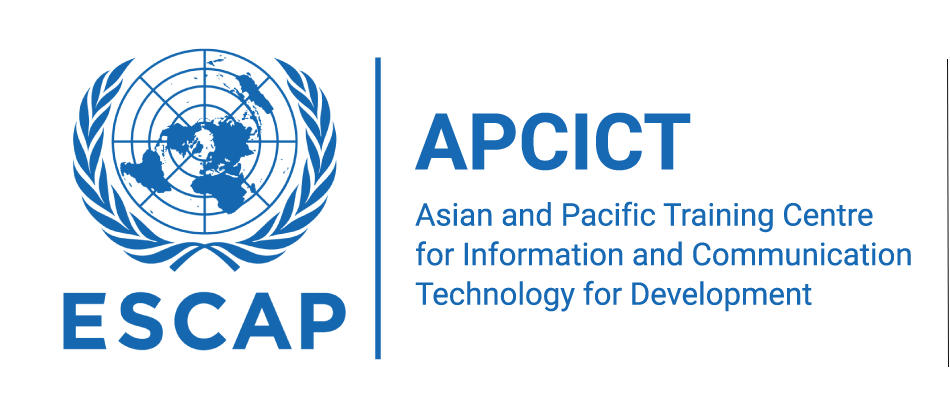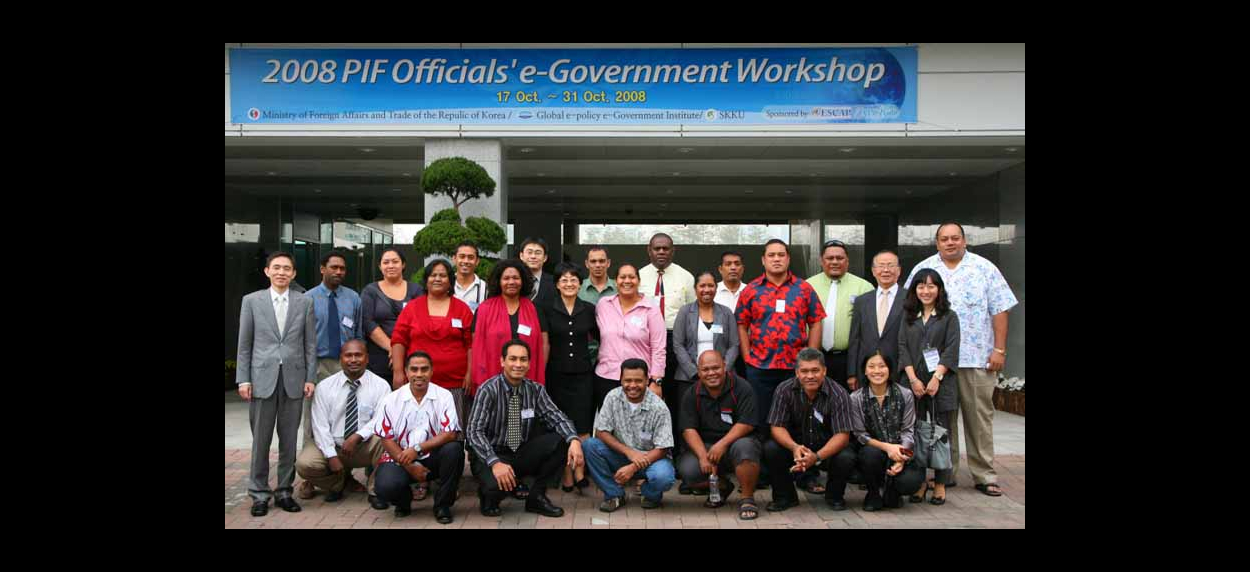A group of government officials from Pacific Island states arrived in the Republic of Korea today to take part in an intensive course on ways to transform government operations and improve public service delivery through the use of digital technologies. The course is centred on a two-week programme in Incheon and Seoul, where the 22 government officials from 13 Pacific Island countries will learn and exchange experiences and ideas with e-government experts.
Press Release No. G/52/2008
Bangkok (UN/ESCAP Information Services) - A group of government officials from Pacific Island states arrived in the Republic of Korea today to take part in an intensive course on ways to transform government operations and improve public service delivery through the use of digital technologies.
The course is centred on a two-week programme in Incheon and Seoul, where the 22 government officials from 13 Pacific Island countries will learn and exchange experiences and ideas with e-government experts. It is organized by the Pacific Islands Forum, the Republic of Korea’s Ministry of Foreign Affairs and Trade and the Global e-Policy and e-Government Institute of Sungkyunkwan University, with support from the United Nations Asian and Pacific Training Centre for Information and Communication Technology for Development (UN-APCICT). The latter is a subsidiary body of the United Nations Economic and Social Commission for Asia and the Pacific (ESCAP).
“A well-planned e-government strategy can make leaps into building a more efficient and transparent government.” said Hyeun-Suk Rhee, APCICT’s director. “e-Government applications can build citizen trust in government, promote economic growth by improving interface with business, and empower citizens to participate in advancing good governance.”
For the programme, APCICT will deliver the e-Government module from its flagship region-wide training programme, known as the Academy of ICT Essentials for Government Leaders. The Academy has a comprehensive eight-module training curriculum on information and communication technology (ICT) for development targeted at policymakers. “This module on e-government discusses how ICT applications have improved the way government works, and analyzes factors that lead to the success or failure of e-government applications,” said Nag Yeon Lee, author of the e-Government module.
The course is part of APCICT’s overall ICT capacity-building strategy in the Pacific to provide, through the Academy, relevant knowledge and skills needed by policymakers to maximize the use of ICT applications in meeting development goals.
Last month, APCICT held, on the Cook Islands, the first Academy workshop for the Pacific region, and signed a formal agreement with the Pacific Islands Applied Geoscience Commission to customize the Academy’s modules and roll-out its workshops in 14 Pacific Island countries over the next two years.



